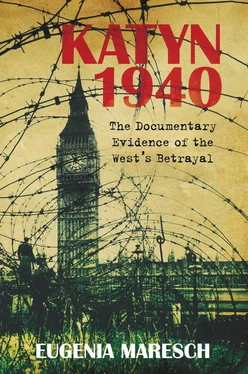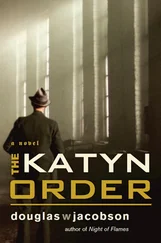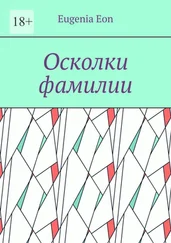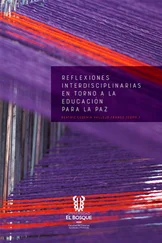Airey Neave, [1] Airey Neave, (1916–1979) MP, officer of the Territorial Army, sent to France 1940, wounded and taken prisoner Oflag IX and Stalag IXa in Toruń, Poland. Escaped, caught and imprisoned in Colditz, escaped again, reached London 1942. Capt. recruited for MI 9 escape and evasion operations as intelligence officer. After the war served on BWCE at Nuremberg, empathised with the Polish cause. Assassinated, probably by the INLA (Irish National Liberation Army).
who was at Nuremberg as an official investigating officer, felt uneasy with the result on Katyn and supported the Polish idea to present the case at the UN General Assembly. He looked for advice and guidance from Merrick S. Baker-Bates, head of the UN (E & S) Department of the FCO. He was told that according to the rules, a private individual or even a group of MPs could not put an item on the agenda of the Assembly because they did not represent the British government, who would very likely resist the idea. There was no procedural reason why the British government or any other member state of the United Nations should not seek to put Katyn on the General Assembly’s agenda. But the British government had avoided ascertaining the truth for nearly 30 years – changing now they might be ridiculed. Neave, like O’Malley, also had to abandon the idea of taking the matter to the ICRC (International Committee of the Red Cross) in the context of treatment of PoWs. Baker-Bates, who anticipated that the ICRC would not want to be involved in a politically contentious question, dissuaded him. [2] TNA FCO 28 /1475 ENP10/1, M. S. Baker-Bates’ brief UN (E & S) Department of the FCO to G. Walden Eastern European and Soviet Department (E&SD), 14 June 1971.
The Polish Diaspora, especially in Britain and the US, had organised meetings and petitions in support of the motion. The Federation of Poles in Great Britain, embracing some 54 organisations, made representation to the British government requesting condemnation of the perpetrators ‘in the interest of humanity, truth, justice and history’. [3] TNA FCO 28 / 1475 ENP 10/1, correspondence between 16 May and 24 May 1971, signed by the chairman Franciszek Miszczak, Czesław Kolarczyk and Józef Płoski.
A letter addressed to the British government written by the Secretary of the Worcester Branch of the Polish Ex-Combatants Association, Mieczysław Jarkowski (the Honorary Chairman of the Association in Great Britain), also indicated that an attempt was being made to bring Katyn to the attention of the United Nations. It simply read:
My committee, which represents the Polish community in Worcester, begs you to sign the appeal of Mr Neave MP, calling for investigation by the International Court of the Katyn murders. We feel that this matter has been shrouded in secrecy for far too long.
Lord Barnby’s Brave Efforts
Lord Barnby [4] Lord Barnby, Colonel, CMG, CBE, Chairman of the Katyn Memorial Fund.
was to raise the all-important parliamentary question on 17 June 1971, while Lord St Oswald’s supplementary questions were to follow. The House of Lords were to consider
…whether Her Majesty’s Government will now support an effect to secure pronouncement establishing beyond contention the authorship of the mass murder of over 4,000 Polish officer prisoners of war in the Katyn Forest near Smolensk, Russia, in the spring of 1940, and bring to light the disappearance without trace of a further 10,000 Polish officers interned in 1939 in the Soviet camps of Ostaszkow and Starobielsk.
Lord Barnby’s presentation was preceded by an aide-mémoire, which he wrote in a questionnaire format and sent to Maurice, Lord Aberdare, for presentation at the Despatch Box in the House of Lords. The note was analysed and commented on on 16 June 1971 at the East European and Soviet Department of the FCO by Lord Robin Hankey, long-serving First Under Secretary of State, who considered Barnby’s presentation rather weak and not at all original. He compared it to the prefaces of FitzGibbon’s four books, not considering it material for a serious debate on policy. The style apparently did not appeal to him as he paraphrased Barnby’s text:
Why should we, in Britain, be concerned with this?
– Because Poland was our ally, for whom we went to war. Poland contributed magnificently to victory, but because of Yalta, Poland herself achieved no freedom for herself. Because of Russia, we did not allow the Poles to take part in the Victory March. If we accepted Poland’s sacrifices in time of war, we must help them now over an elucidation of the crime at Katyn.
What object will all this serve?
– If nothing else, it will show our gallant ex-allies that they are not forgotten and if a judgement can be achieved on an international forum, it will at least provide some kind of ‘moral indemnification for the thousands of surviving widows and other relatives and brother officers of the victims.
Lord Hankey, perhaps the oldest and most knowledgeable authority on Katyn, knocked down almost all of Barnby’s arguments; first, one of the reasons why the British government did not pay much attention to the US Select Committee was that its members apparently subscribed to the principles of Macarthyism and that was why the conclusions of the Select Committee were not officially adopted. More to the point, he considered Barnby naive not to realise that an admission to 30 years of lies by the Russians would have an explosive effect in Poland and Eastern Europe. On the question of the international ‘conspiracy of silence’, a taboo subject in political and diplomatic circles, he retorted with truly British pragmatism: [5] TNA FCO 28 / 1475 ENP 10/1, analysis of Lord Barnby’s aide memoir by Lord Hankey, 16 June 1971.
Fear of offending Russia is not the only reason for the hushing up of the matter; the question is whether an International Inquiry, (which would in fact certainly exclude countries in the Soviet bloc and perhaps be entirely a ‘Western’ inquiry), could amass any new facts (there are a good many publications already available after all) and come to any decisive ‘judgement’ in the absence of Soviet and communist Polish co-operation. Probably such an inquiry would be just a public repetition of evidence already in print. In fact the crime has very likely been elucidated as much as it ever will be.
The subject is presumably ‘taboo’ in the Soviet bloc. Western diplomats presumably in turn feel that there is nothing to gain by striking quixotic attitudes. Given the facts of power, how can Britain be responsible for Poland’s tragedy (especially Katyn)? Or is it, as seems to me implied in ‘because of Yalta’, where Churchill did about as much as he could for Poland in the circumstances, given the facts of power and Roosevelt’s credulity.
According to Hankey’s brief, Aberdare was to refute Barnby’s arguments and declare the matter to be a moral issue, rather than a legal one. He was to point out that the British were not associated with any of the three investigations carried out by the Germans, the Russians and the Americans. Since the truth was not established in 1941, 1944, 1946 or 1952, what chance would the new enquiry have to establish guilt ‘beyond contention’? The debate ended with by now well-worn Katyn cliché: ‘the only result of a new enquiry would be to re-open old wounds.’ [6] TNA FCO 28/ 1476 ENP 10/1, 22 June 1971, also in FCO 28 /1945 ENP 10/1, 17 June 1971.
On 17 June 1971, Hansard recorded the proceedings at the House of Lords’ question time, under the heading: Polish War Prisoners: Mass Murder in Russia . [7] TNA FCO 28/ 1475, copy of Hansard from17 June 1971, 5.17 pm, covering Lord Barnby’s Motion on Katyn.
After presenting the question, Lord Barnby began his speech:
Читать дальше












